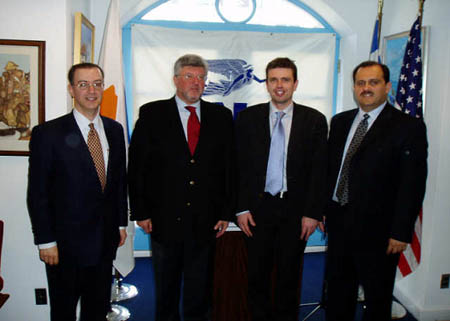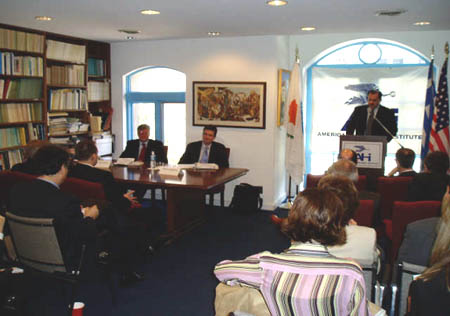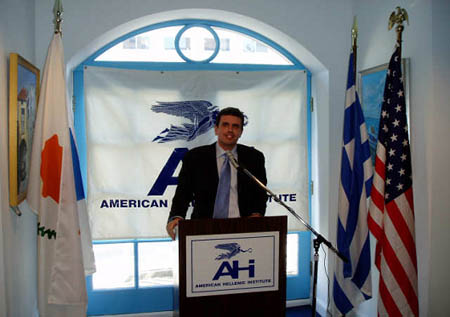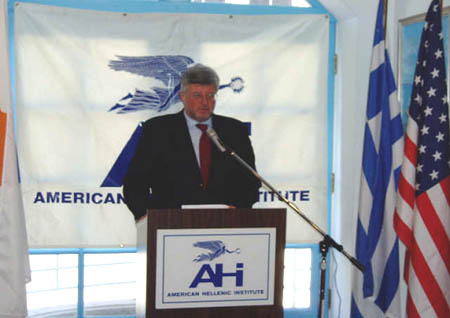

AHI Noon Forum Panel on the Balkans

WASHINGTON, DC – On February 9, 2006, the American Hellenic Institute (AHI) hosted a noon forum panel titled “The Balkans: Initiatives for Stability and Euro-American Interests.” The panel speakers were Ambassador Alexandros Mallias, Greek Ambassador to the U.S., and Professor Dimitris Keridis, Constantine Karamanlis Associate Professor in Hellenic and Southeastern European Studies at the Fletcher School, Tufts University.

In this discussion, Professor Keridis began with three points: (1) the Balkans have become a European issue, the U.S. since 9/11 having shifted its focus to the Middle East, the war in Iraq and operations in Afghanistan, (2) the Balkans have become increasingly important to Europe because of ongoing EU accession negotiations, and EU criteria have become a framework for these Balkan countries, and (3) the future of Kosovo will dominate the debate on the Balkans in 2006 with hope of resolution.

Professor Keridis spoke of Greece’s greater role in the Balkans following a shift in foreign policy and realignment with Europeanization in the late 1990s. In this respect, Professor Keridis stated that economics prove to play an important role in the Balkans and will continue to do so because Greece has invested heavily in the region.
Professor Keridis stated that there is a need for “a re-education of our Greek diplomatic service towards economic diplomacy. I have seen a certain reluctance on the part of the Greek Foreign Service to take full advantage of the opportunities to promote Greek business interests in the area… Of course there are always exceptions and there is progress there to be made but I feel that this is a great area where Greece needs to focus or to take full advantage of the opportunities and of its leadership position as a full EU member.”

Ambassador Mallias spoke on Greece’s shift in foreign policy priorities since the mid-1990s and how this has facilitated its regional politics as well as relations with the U.S. Greece, like the rest of Europe, underwent policy changes as a member of the European Union. Ambassador Mallias stated that despite an improved situation in the Balkans, “2006 remains extremely critical for overall stability in Southeastern Europe, and an unfinished job lies ahead.”
Ambassador Mallias identified three main reasons why the Balkans are an important region to Greece: (1) Greece’s economic and strategic interests in the Balkans and the Eastern Mediterranean, Greece having invested over $10 billion in Southeastern Europe, (2) Southeastern Europe is important for energy and infrastructure as Greece is dependent on the Balkans for energy, and (3) expansion of Balkan infrastructure, particularly energy pipelines, will help stabilize the region.
Ambassador Mallias also discussed Greece’s strong support for Balkan nation memberships in the European Union. “The future of the Balkans," he said, "lies in the European Union.” Also, Greece’s partnership with the U.S. rests on public diplomacy in the Balkans. Ambassador Mallias said, “Greece and the United States have a good record of cooperation in stabilization of the Balkans. The channels of communication work well and high-level visits are sustained.”
The Ambassador also spoke of the issues at stake for the final status of Kosovo and expressed hope that the resolution would say “ ‘no’ to partition, ‘no’ to annexation by any neighboring countries, and ‘no’ to union with any neighboring countries.”